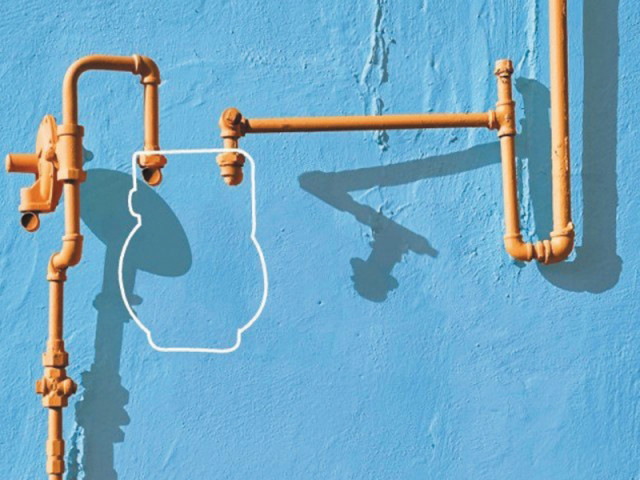Higher UFG ceiling: Consultant’s report may complicate matters for govt
Gas utilities may be forced to return Rs49 billion to consumers.

The Economic Coordination Committee (ECC), in a meeting held on November 20, had agreed to issue fresh policy guidelines to the Oil and Gas Regulatory Authority (Ogra) to shift the multibillion-rupee burden onto gas consumers on the condition that the regulator would incorporate the recommendations of an independent consultant into subsequent revenue assessments of gas distribution companies.

Earlier, Ogra headed by Tauqeer Sadiq injected Rs49 billion into gas companies by recovering it from the consumers with an increase in the unaccounted-for-gas (UFG) ceiling, which covers theft and leakage. The government is now giving it a legal cover by issuing the guidelines, but the National Accountability Bureau wants to recover the money from the gas utilities.
“If the consultant prepares a report that does not endorse the measures being taken by the government for injecting money into the gas companies, then the utilities will be forced to return the amount,” an official said.
In the ECC meeting, it was disclosed that Ogra had approached the Ministry of Petroleum and Natural Resources, seeking policy guidelines for finalising the revenue requirements of 2012-13. However, it said the revenue assessments could be revised based on the UFG study.
Ogra stressed that if the consultant did not accept this stance, its recommendations would be incorporated into subsequent revenue requirements.
The petroleum ministry backed the proposal subject to retrospective adjustment after finalisation of the UFG study and a new tariff regime with the objective of keeping the gas utilities sustainable.
Earlier, Ogra had hired an independent consultant, which lent its support to a 7% UFG ceiling, terming it justified. However, Ogra officials, who were prime witnesses in a scandal and wanted to keep the scam alive, did not agree with the study. They also refused to pay fee to the consultant.
Around 19 top officials are witnesses in the Ogra case, which is being followed by NAB in the National Accountability Court. They are a key hurdle to bailing out the gas companies which are on the verge of default.
“If the new consultant says that the 7% UFG is justified, it is not clear whether Ogra will accept it or not,” the official remarked.
In 2010, Tauqeer Sadiq had increased the UFG level from 5% to 7% along with some other measures to recover the cost of gas theft and leakage from the consumers. However, the current government has tactfully raised the UFG by taking different steps and their cumulative impact will effectively push the UFG to 10%.
According to the new guidelines, a change in the bulk-retail ratio with 2003-04 as the base year will result in a 4% rise in UFG to 8.5%, which will be borne by the honest consumers.
In 2003-04, bulk consumers constituted 56% of the total while retail consumers were 44%. At present, bulk consumers account for 28% of the total whereas retail consumers comprise 72%. Retail consumers are said to be the major cause of UFG losses.
Other measures approved by the ECC included the cost of gas pilferage by unregistered consumers, volume consumed in the law and order-stricken areas, volume against minimum billing and income from non-core activities.
“The cumulative impact of all these measures will effectively take UFG to around 10%, which will be recovered from the consumers who are already paying bills,” the official said.
Published in The Express Tribune, December 26th, 2014.
Like Business on Facebook, follow @TribuneBiz on Twitter to stay informed and join in the conversation.



















COMMENTS
Comments are moderated and generally will be posted if they are on-topic and not abusive.
For more information, please see our Comments FAQ